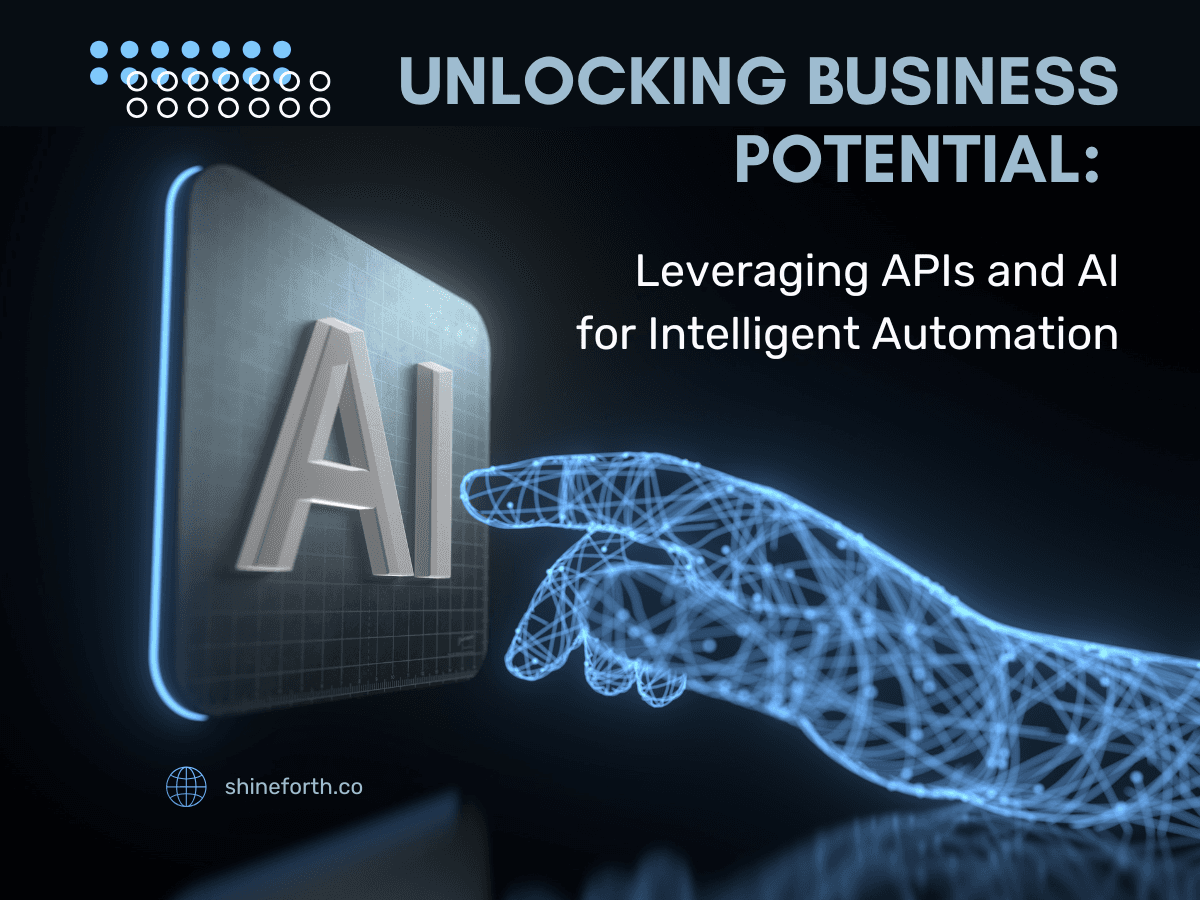Unlocking Business Potential: Leveraging APIs and AI for Intelligent Automation

In an era where digital transformation is redefining business landscapes, efficiency is not just a goal—it's a necessity. Organizations worldwide are on a relentless quest to streamline operations, amplify productivity, and deliver exceptional customer experiences. Central to this revolution are two technological titans: Application Programming Interfaces (APIs) and Artificial Intelligence (AI). These tools are at the forefront of intelligent automation, offering businesses an opportunity to transform operations in unprecedented ways. Let's delve deeper into how this powerful combination can propel your business into the future.
Understanding APIs and AI: A Symbiotic Relationship
APIs are often regarded as the connective tissue of the digital world. They enable disparate software systems to communicate seamlessly, acting as translators that facilitate interoperability. This connectivity is vital for integrating varied systems and unlocking their true potential. For instance, consider a retail company that uses APIs to connect its e-commerce platform with its inventory management system, ensuring real-time inventory updates and improved customer satisfaction.
On the flip side, AI is the intelligence that endows systems with learning, reasoning, and decision-making capabilities. When AI intersects with APIs, it extends the capabilities of AI beyond isolated applications. This synergy allows for the automation of complex processes, transforming industries by enabling predictive analytics, natural language processing, and more.
Streamlining Operations with Intelligent Automation
Picture a scenario where systems predict needs, make informed decisions, and execute tasks with minimal human intervention. This is not a distant dream but a palpable reality for businesses leveraging APIs and AI for intelligent automation. By integrating AI-powered solutions through APIs, companies can automate repetitive tasks, thus reallocating human resources to more strategic roles.
Take the example of a customer service operation. AI-driven chatbots, integrated with CRM systems via APIs, efficiently handle routine customer inquiries. This automation reduces wait times, enhances customer satisfaction, and allows human agents to focus on complex issues. The outcome? A significant boost in operational efficiency and cost savings.
Real-World Applications and Emerging Trends
The scope of intelligent automation extends across multiple sectors. In finance, for example, AI algorithms analyze market data in real-time, interfacing with trading platforms through APIs to make timely and informed investment decisions, thereby minimizing human error and accelerating transactions.
In the realm of manufacturing, AI models leverage predictive maintenance by monitoring equipment health. APIs facilitate the seamless connection between these models and IoT devices on the production floor, allowing for real-time data exchange and proactive maintenance planning. This approach minimizes downtime, enhances productivity, and prolongs equipment lifespan.
Emerging trends suggest that the integration of AI and APIs will continue to advance, especially with breakthroughs in natural language processing (NLP). This will foster more sophisticated interactions between systems, paving the way for fully automated, intelligent, and intuitive workflows.
Overcoming Challenges in Implementation
While the benefits of integrating APIs and AI are clear, the journey to intelligent automation can be fraught with challenges. Data security, system compatibility, and the need for skilled personnel are some hurdles businesses may face. However, by adopting a strategic approach—starting small, selecting the right tools, and gradually scaling—organizations can successfully navigate these challenges.
Conclusion: Embrace the Future of Automation
The convergence of APIs and AI marks a pivotal shift towards smarter, more efficient operations across industries. By embracing these technologies, businesses can unlock unparalleled levels of automation, sparking innovation and gaining a competitive edge.
As you contemplate implementing intelligent automation, begin by identifying routine tasks that could benefit from automation. Explore how APIs and AI can facilitate this transformation. Remember, the path to intelligent automation is a journey, not a destination. With the right tools and strategies, your business can reach new pinnacles of efficiency and innovation.